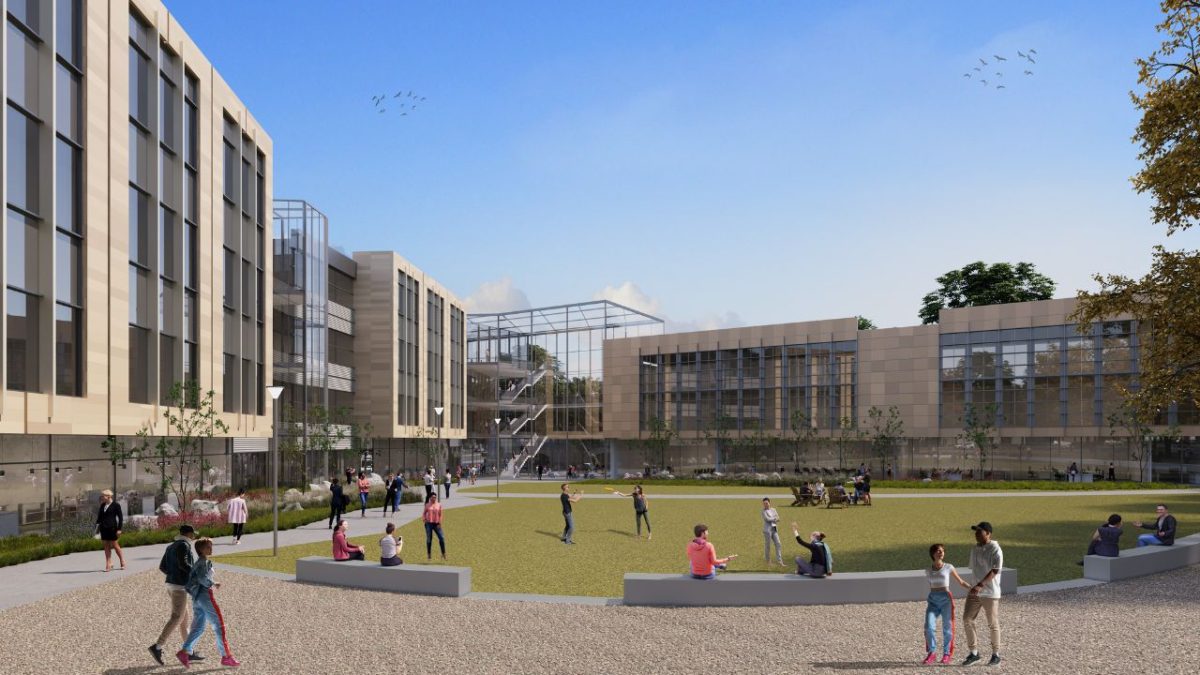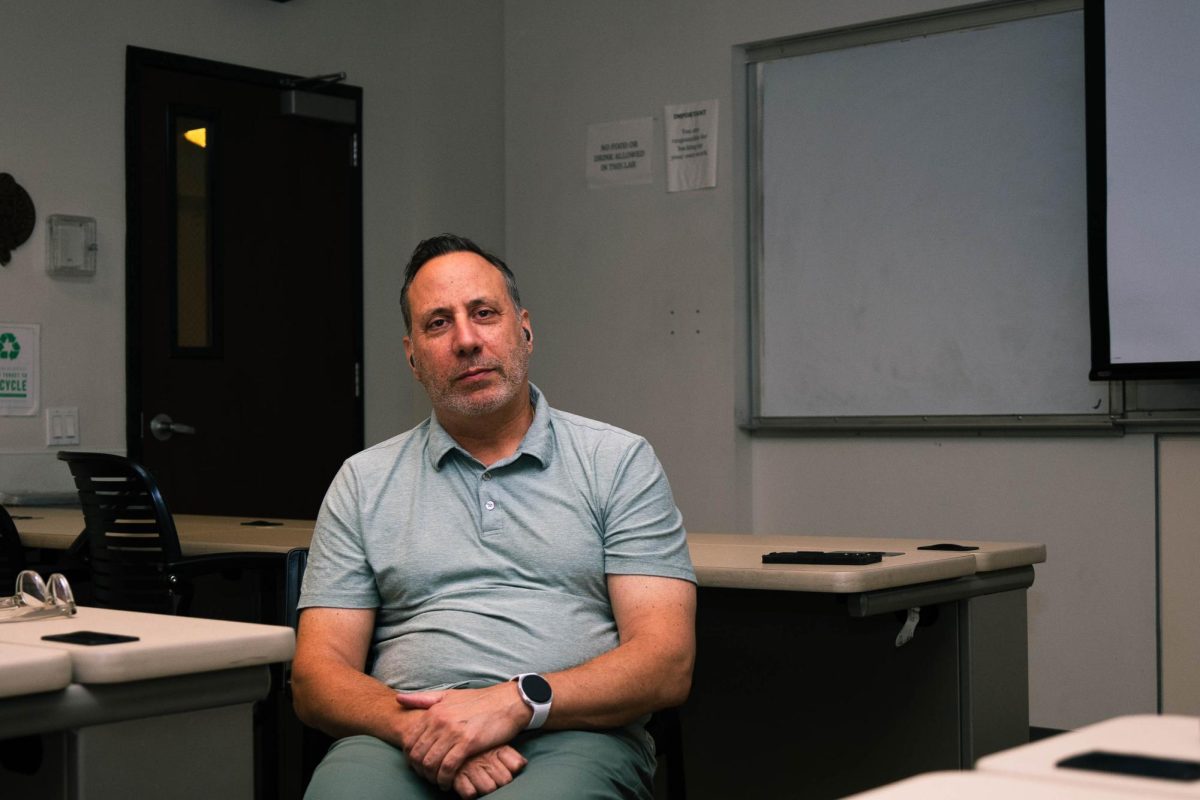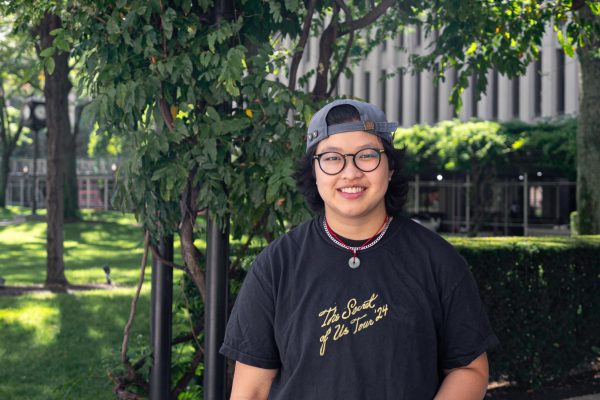Fordham University has received a $1 million gift from a former finance and business executive and alumnus to advance its growing fund for artificial intelligence (AI) research. This donation marks the latest in a series of major investments following last spring’s landmark $100 million science, technology, engineering and math (STEM) donation.
Peter Zangari, Fordham University at Rose Hill (FCRH) ’89, and his wife Jennifer Zangari are donating $1 million over the next few years in order to help support interdisciplinary AI research here at Fordham.
Zangari has worked in the business industry for the last 30 years. After receiving his bachelor’s degree in economics at Fordham, he also obtained a Doctorate of Philosophy in economics at Rutgers University. He has been the vice president at JP Morgan, managing director at Goldman Sachs and an adjunct professor at Drew University. After retiring in 2023 from his role as the global head of research and product development at Morgan Stanley Capital International, Zangari turned his focus towards giving back to the Fordham community.
“I met with the provost and a few other people, and they presented the idea in terms of what they want to do with this ‘innovation hub’… and I thought it was very interesting, because my particular interest once I left my previous career … is to make personal investments into early stage companies that focus on AI.” Peter Zangari, FCRH ’89
Zangari is currently teaching a class at Fordham on AI and the financial markets. He said he believes that AI is a crucial part of the future and an essential subject for students to learn about.
“The reason why AI is important for many people, including Fordham students, is because it’ll be interweaved into our lives. And importantly for students today … you’re at a lucky time because, you know, firms are (in) the early stages of adapting to how do they incorporate AI into their business, into their practices,” Zangari said.
In the past, Zangari has been a guest speaker at Fordham’s Gabelli School of Business here at Lincoln Center, offering advice to business students.
His donation complements the university’s Strategic Plan, found on the “About Fordham” page of the university’s main website, which states: “We can become more Jesuit by centering our students and improving their outcomes. We can better embody a full university by investing in STEM, breaking down silos, and coming together across fields.”
“I think that this has a real opportunity for us to make targeted, important investments that the faculty can benefit from, that the students can benefit from, and then importantly, the broader community can benefit from.” Peter Zangari, FCRH ’87
Zangari described the processes behind developing and implementing his contribution to Fordham’s AI research development.
“I met with the provost and a few other people, and they presented the idea in terms of what they want to do with this ‘innovation hub’… and I thought it was very interesting, because my particular interest once I left my previous career … is to make personal investments into early stage companies that focus on AI,” Zangari said.
Using the experience he has gained over his 30-year career, Zangari wants to help invest in future generations, starting with the Fordham community.
“I think that this has a real opportunity for us to make targeted, important investments that the faculty can benefit from, that the students can benefit from, and then importantly, the broader community can benefit from,” Zangari said.
Zangari has also given back to the Fordham community as a member of the university’s President’s Council. Founded in 2004, the President’s Council brings together established alumni, ranging in careers from finance to law, to return to Fordham and mentor new generations of young leaders. Zangari believes that the President’s Council is a good opportunity for Fordham alumni to learn more about changes being made to the university.
“It’s a good forum to discuss important high-level matters at the university, and it’s a good opportunity for someone like me to kind of, in quotes, better understand what the university is thinking right … before it goes into practice,” Zangari said.
The council also helps bankroll the Fordham Founder’s Undergraduate Scholarship Fund, one of the largest financial aid awards Fordham undergraduates can receive.

The $1 million donation to AI research comes after the $100 million gift that Fordham received last spring to transform the university’s STEM research programs. The gift, made by Fordham alumni Maurice and Carolyn Dursi Cunnifie, is the largest Fordham has ever received. It will fund the construction of a new, 200,000 square foot science facility at the Rose Hill campus featuring teaching labs, research spaces, student lounges and green space.
The gift is intended to expand the university’s STEM degree programs, increase enrollment of STEM majors and allow students to gain hands-on experience with partnerships at the Albert Einstein College of Medicine and Memorial Sloan Kettering Cancer Center.

Alongside these changes, Fordham administrators have taken steps to draw lines on AI usage. On May 2, University President Tania Tetlow gave a TED talk on the future of Artificial Intelligence and the way that Jesuit principles are intertwined with the maintenance of human wisdom.
“The Jesuits teach us the principles of discernment. They were renowned for the quality of their decisionmaking—that is why they have flourished for centuries,” Tetlow said. “The first step of discernment is to take a decision that really matters and give it the time that it needs to avoid jumping to conclusions, to be truly open to all possibilities. And that is harder than it looks, right? That’s where AI is better than we are at remaining open.”
“As New York’s Jesuit University, Fordham is uniquely positioned to integrate generative AI into its ethos. By emphasizing ‘Cura Personalis’ and adopting the principles of RomeCall, Fordham can prioritize AI ethics, social justice inclusivity and individual well-being.” Artificial Intelligence Vision Committee
In her speech, Tetlow reminded her audience that there are positive and negative sides to AI.
“We can’t rely on AI because it turns out that the data often for excruciating decisions is available for both sides. I am a lawyer. I can argue perfectly logically and passionately for either side of every decision. I’m very good at it. It doesn’t tell you the answers, and if you think it does, you will fall prey to that kind of rationalization,” Tetlow said.
In June 2023, Provost Dennis Jacobs established Fordham’s Artificial Intelligence Vision Committee. The committee is responsible for looking over the policies and safety tools in place to help Fordham benefit from generative AI tools and leverage them to improve teaching and research.
“As New York’s Jesuit University, Fordham is uniquely positioned to integrate generative AI into its ethos. By emphasizing ‘Cura Personalis’ and adopting the principles of RomeCall, Fordham can prioritize AI ethics, social justice inclusivity and individual well-being,” the committee’s proposal said.
As Fordham expands their STEM programs, the policies on AI use here at Fordham may be updated as the role of AI in classrooms continuously evolves.
According to Fordham’s Teaching and Learning in an Era of Generative Artificial Intelligence handbook, Fordham faculty have the opportunity to choose their classes’ policies regarding the use of AI.
“Faculty need to clearly communicate the degree to which it is unacceptable for students to use (generative AI) tools in their course. The course syllabus is an ideal place to communicate such expectations,” the handbook says.
Fordham has a Faculty AI Interest Group that brings together faculty and the Educational Technology and Research Computing team of the Office of Information Technology to collaborate on AI-related matters.
Fran Blumberg, professor of psychology at Fordham, currently serves as one of the co-chairs of the group. She explained in an email that the group meets on a regular basis, and for this academic year, they will meet once per semester. While they do not handle AI policies, Blumberg said that the group works together to consider how best to educate faculty about “available AI through Fordham.”
“This group is very informative and has a consistent group of faculty and staff attendees, including non-tenure track faculty,” Blumberg said.
All the board members are faculty in different departments here at Fordham such as communications, business, modern languages and law.
The list was last updated on Jan. 28, 2025, and contains professors who no longer teach at Fordham. As of Oct. 7, the list remains unchanged.
Current professors listed as members of this group were contacted by The Observer and were admittedly unaware of the existence of their position and, therefore, unable to comment.
As Fordham expands their STEM programs, the policies on AI use here at Fordham may be updated as the role of AI in classrooms continuously evolves.



